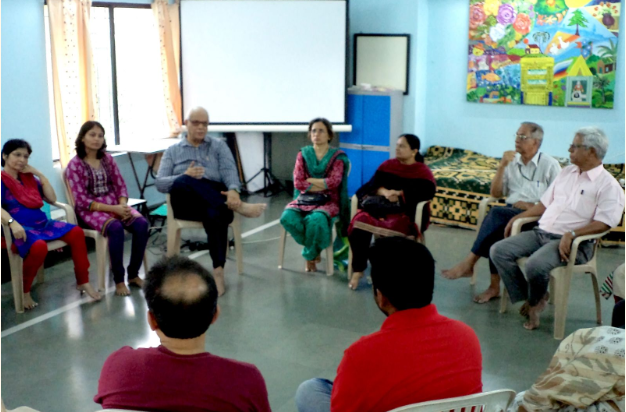Sujata Jayaprakash
Peer support groups play a significant role in contributing to the mental well-being of individuals by providing emotional support, shared experiences, and practical strategies for coping with mental health challenges.
Feeling understood contributes to mental well-being. Being in a group with others who have similar experiences fosters a sense of understanding and empathy. Regular interactions with other group members can help alleviate feelings of loneliness and isolation.
Learning from others and hearing about their journeys and coping strategies can provide new insights and ideas for managing one’s own mental health. Also realizing that there are other people who are facing similar challenges can reduce feelings of abnormality or stigma.
When people are part of a peer support group, often some members share practical tips and strategies for dealing with specific issues, such as managing anxiety or dealing with feelings of depression. Hands-on activities in a group can help develop coping mechanisms, improve communication skills and problem-solving abilities.
Regular meetings provide a source of encouragement and motivation to continue working on personal goals. A lot of resource sharing also takes place in groups so people can access information about some helpful services and support networks.

Here are a few practical steps to benefit from peer support groups.
- Find the right group that focuses on your specific mental health issue. Secondly try out a few different groups to see which one feels like the best fit in terms of atmosphere, structure and members.
- Engage actively in discussions and activities. Share your experiences and listen to others. Attend meetings regularly to build relationships and gain the full benefits of the support offered.
- Apply learnings and use the resources recommended by group members in your daily life.
- Build connections outside of meetings for additional support and friendship. Offer your support and encouragement to others, fostering a reciprocal and caring environment. Seek professional guidance, use peer support groups as a complement to professional therapy. If you have any doubts about the advice or strategies discussed in the group, consult with a mental health professional for clarification.
By participating in peer support groups, individuals can gain valuable emotional support, learn effective coping strategies, and build a network of understanding peers, all of which contribute significantly to their overall mental well-being.
